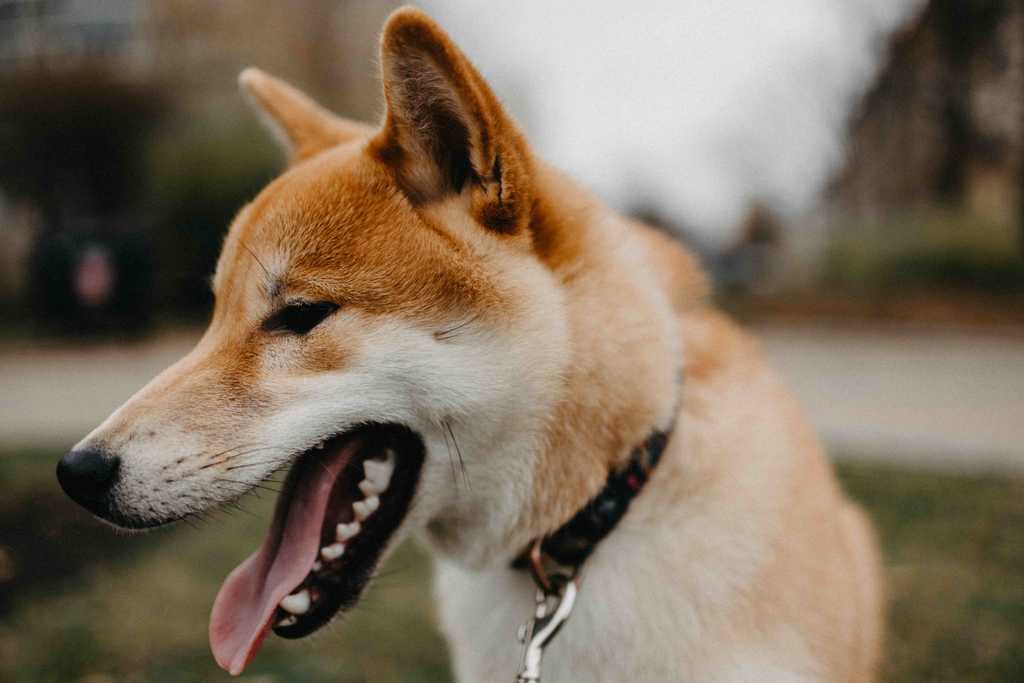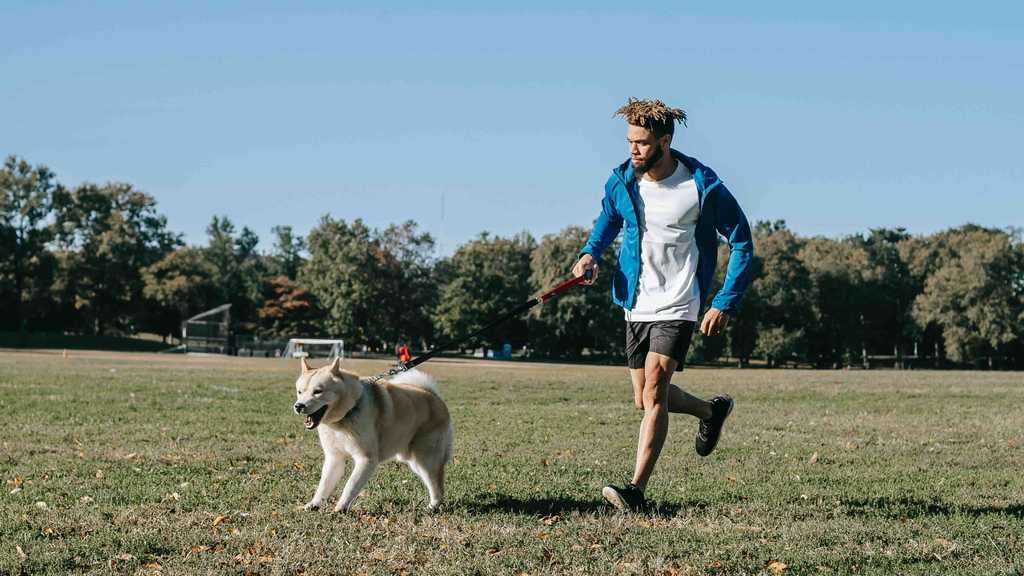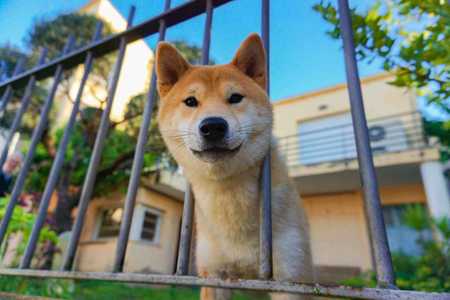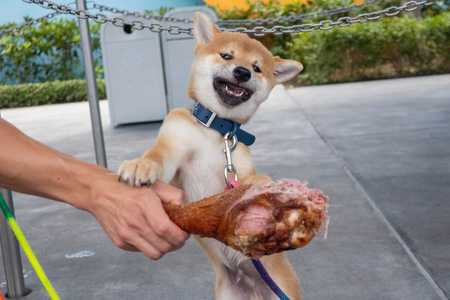How long can a Shiba Inu live?
In Shiba Inu, health problems do not result so much from human intervention in breeding this breed. They are primitive dogs and maintain the robust constitution that is typical of the breed. However, there are diseases with more or less serious consequences on the average life expectancy of Shiba Inu.
The life expectancy of a Shiba Inu is between 12 and 16 years, although some dogs can live up to 17 years if properly cared for.
The longest-lived dog in 2011 was a Shiba Inu. His name was Pususke and he died at the age of 26. Unfortunately, he could not break the record for the longest-lived dog in the world because he was three years younger than the previous record.
The average lifespan of the Shiba Inu
Estimates of the average life span of the Shiba Inu tell us that these dogs can live between 12 and 16 years. A Shiba Inu without health problems, cared for and well maintained, can live well beyond this threshold.
Being a small-sized dog, it has a longer life expectancy than other less lucky breeds. When considering some larger breeds, the difference is obvious. Of course, this is what the statistics say. Life is also made up of exceptions on the positive side, but unfortunately also on the negative side.
While accidents and illnesses are for the most part unpredictable, it is also true that our Shiba Inu can be spared some health problems by intervening in certain aspects, especially in the way they are cared for.
However, with the average dog lifespan being between 13 years, the Shiba Inu lifespan is well above average. But, if we group dogs by their size, then as this research suggests, small dogs lived on average for 16.2 years, medium-sized dogs for 15.9 years, large dogs for 14.3 years, and giant dogs only until 12 years old. Therefore, Shiba Inu's lifespan perfectly fits between the small-sized and the medium-sized dogs.
Lifespan: males vs females
There is no substantial difference in life expectancy for Shiba Inu based on sex. Therefore, typically both males and females live the same years, assuming they are treated well. However, several studies point out that a neutralized dog tends to live longer than the same breed and same-sex dog.
However, regardless of sex, their exercise and walking requirements are also similar to keep them fit and live longer.
Female Shiba Inu should have additional health checks, especially if they will be used for breeding. It is important that they have regular health checks to prevent the next generation from having diseases or infections.
Male Shiba Inu are more prone to disease as they tend to be more playful with other dogs.

What could affect the lifespan of a Shiba Inu?
Adopting a dog is like getting a new family member, and of course, no one wants them to leave prematurely. It is essential that dog owners take the necessary precautions so that their dogs live long and healthy lives. Every pet owner wants to save their dog from deadly infections and viruses that can affect their lifespan, and this section is specifically for them.
Shiba Inu is a Japanese breed that makes them a double-coated dog breed, which means they have an outer coat of hard, thick, smooth fur and inner coatings of soft, warm insulating leather or coat. This coat means that Shiba Inu is generally unaffected by weather, but Shiba fur can be prone to allergies.
Therefore, their fur needs proper care and attention. Shiba Inu lose their coats twice a year, normally during spring and autumn. During this period, it is recommended that you brush your dog every day. At all other times, you should comb and brush your dog at least once a week to maintain a healthy coat.
Shiba Inu can also be prone to reproductive tumors that can be life-threatening. Neutering or spaying is recommended to prevent any chance of this cancer. In any case, it is always best to consult your veterinarian for further information.
Tips to increase the lifespan of the Shiba Inu
Give him the best nutrition possible
Your dog's health condition is a reflection of what it eats. That's why it is essential that the foods you choose for your nutrition are of the highest quality. What you find in large retailers can leave something to be desired in many ways.
The main reason is that in order to get a lower price, these foods tend to contain mostly plant-based proteins. Our four-legged friends are born carnivores, and it is an animal protein that they need.
In any case, don't assume that a better alternative is necessarily much more expensive. There are animal protein kibbles that are definitely more in line with a dog's nutritional needs.
Keep in mind, however, that your Shiba's diet will not always be the same and will change according to physiological needs. A puppy will not eat as much as an adult, a Shiba Inu with special conditions will need an even different diet.\ \ If you want to know what should be the right weight of your Shiba Inu based on its age, then I'd suggest you to check out the growth chart for Shibas.
Don't skip vet checkups
Vet checkups should be done once a year. This is critical so as not to miss vaccine booster deadlines. It is also helpful to have comprehensive check-ups once in a while. This becomes increasingly important as they get older.
One trick to forgetting your visits is to set an event on your phone calendar each time you go to the vet. So that exactly one year later, the notification arrives to remind you to go to the vet.
Finally, it is good not to forget the flea and tick repellents and deworming treatments. Always be vigilant, too, because you may notice that something is wrong even by simply brushing your Shiba Inu.
Don't neglect education
Educating your Shiba Inu is a very important aspect of trying to extend their life expectancy. This is because properly training your dog means teaching him to relate in a healthy way to others and his surroundings.
By teaching him to respond to commands you can call him back to you instead of sending him into danger, you can manage him and keep him from getting involved in accidents of various kinds.
It is important that education be given from puppyhood, as the Shiba Inu is a fairly difficult breed to train if you are not experienced.
Don't let him lack physical activity
Shiba dogs are agile and full of life, and exercise is a key aspect that should not be neglected if you want their mental and physical well-being to be unaffected. The ideal is a long walk to which you can add a few shorter outings for needs. The absence of movement and stimulation can cause discomfort, and it is best not to take chances with the dogs' psyche.
One hour a day of activity is the minimum recommended to keep your Shiba Inu healthy. The lack of activity can result in destructive or even aggressive behavior. Because of their intelligence, they require a lot of mental stimulation and enrichment.
There are three main types of exercises and activities you need to provide for your Shiba Inu dog every day.
- Daily walk
- Purposeful activity
- Mental stimulation
This recommended amount of exercise and ideas are for a healthy adult Shiba Inu. The exercise needs of a puppy are different since they are still growing. The wrong amount and type of exercise can cause injury to a puppy with growing bones and joints.
As a dog ages, it becomes less active and has lower energy levels. However, it is still important that they remain reasonably active to keep their joints and muscles mobile and manage their weight.

Common health problems of Shiba Inu
Shiba Inu are Japanese dogs of the Spitz breed. This makes them a stronger breed, which means less chance of being caught in a deadly infection or virus, although they are still prone to some genetic health conditions.
One common health problem that poses a threat to your Shibu Inu is luxating patella, which is a leg condition that can cause lameness. The main symptoms include limping in the back of the dog's legs.
Other common health problems include eye problems such as glaucoma, cataracts, and retinal atrophy. Progressive night vision loss affecting both eyes is usually the first sign of progressive retinal atrophy. It is always recommended that your dog have a proper eye checkup every two to three months to keep him healthy.
Hip dysplasia is another major concern for the Shiba Inu. The good news is that hip dysplasia can be easily diagnosed by a veterinarian. Symptoms of hip dysplasia include stiffness or weakness in the back of the dog.
Shiba Inu are also prone to allergies, which can be prevented with vaccinations.
Disclosure: Please note that some of the links below may be affiliate links, from which I'll earn a commission at no additional cost to you. When you use one of my affiliate links, the company will compensates me, which helps me run this blog and keep all of my in-depth content free of charge for readers like you.

